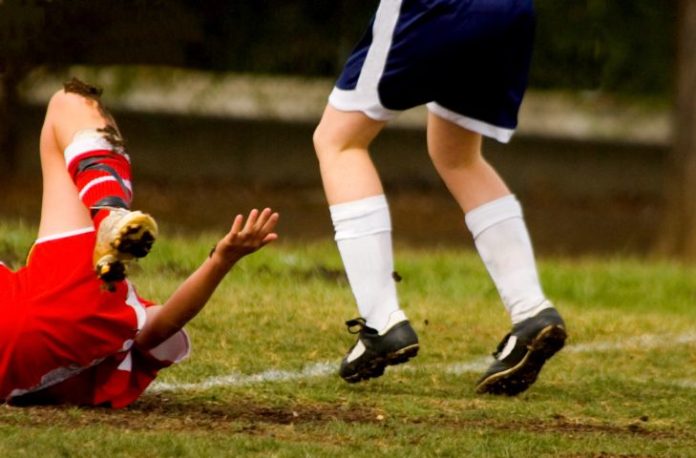Sport-related concussion in child and adolescent athletes is a public health problem, with rising numbers of high-school athletes diagnosed with the condition. Twenty-nine states in the US now have legislation applicable to the condition in youth extracurricular activities.
Clinicians from Boston Children’s Hospital authored a series of review articles published Nov. 13 in the December 2012 edition of Current Opinion in Pediatrics to help assess the most up to date information on sport-related concussion.
Edited by Robert Tasker, MD, of the Brain Injury Center at Boston Children’s, andScott Pomeroy, MD, PhD, neurologist-in-chief at Boston Children’s, the series covers basic science to evidence-based management, to long-term complications associated with the condition.
Together, the articles make a strong argument for adopting a new culture in our approach to youth sports. Pediatricians, parents, and their child or adolescent athlete each have clinical roles to play in sport-related concussion.
In a cover editorial, Tasker and Pomeroy note that our understanding of concussion’s effects has a long way to go. Articles from Boston Children’s experts also include:
Epidemiology, trends, assessment and management of sport-related concussion in United States high schools
Rejean Guerriero, Mark Proctor, Rebekah Mannixand William Meehan III (Boston Children’s Hospital)
This review documents the rising number of high school athletes with sport-related concussions. Football has the highest number of concussions in high school; girls’ soccer has the second highest. Coaches are starting to implement return-to-play guidelines.
Neuropsychological evaluation and management of sport-related concussion
Alex Taylor (Boston Children’s Hospital)
Neuropsychological testing shows that concussion affects attention, concentration, speed of information processing and memory. Dr. Taylor discusses the role of testing in determining readiness for sports and school, and looks at differences by age.
Subacute concussion-related symptoms and postconcussion syndrome in pediatrics
Heidi Blume and Karameh Hawash (University of Washington and Boston Children’s Hospital)
Some children develop a disabling “postconcussion syndrome” that lasts for weeks or months after injury (headache, poor balance, light and sound sensitivity, sleep dysregulation, cognitive deficits, emotional disturbance). This review looks at treatment options and discusses how the injury, pre-existing risk factors and psychosocial issues can interact to cause symptoms.
Source: Boston Children’s Hospital










